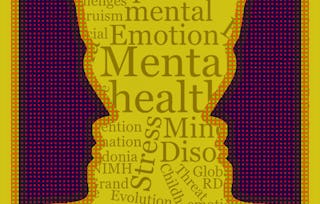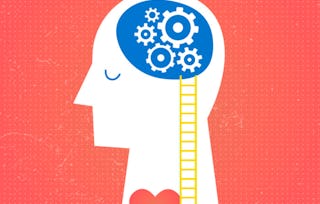The main goal of this class is to gain an introductory exposure to the nature of the psychiatric disorder known as schizophrenia as revealed by the scientific method. We will discuss a broad range of findings from the scientific investigation of biological and psychological factors related to schizophrenia and its treatment. More specifically we will learn about: (1) key symptomatic features through discussion and enactments of interviews with actors portraying many of the cardinal features of the illness, (2) what brain imaging studies (MRI and fMRI) and neurochemistry have taught us about the neuroscience of the disorder, (3) scientific psychological data and theories concerning cognition, emotion and behavior in schizophrenia, and (4) current, evidence-based somatic and psychosocial approaches to treatment. A brief historical overview of the recent emergence of the psychiatric category of schizophrenia will be presented as well.

Schizophrenia

2,474 reviews
Details to know

Add to your LinkedIn profile
2 assignments
See how employees at top companies are mastering in-demand skills

There are 5 modules in this course
The first module is focused on introducing key symptom characteristics of the psychiatric diagnosis known as schizophrenia, and describes current thinking around potential causes and biological correlates of the disorder.
What's included
6 videos
The second module is focused on a continuing exploration of symptoms in the disorder through simulated client-clinician interactions. Lectures in this unit also focus on the history of the treatment of schizophrenia in Western culture.
What's included
4 videos1 assignment2 discussion prompts
In the third module we begin to discuss the neurochemistry of the disorder as well as common manifestations of those diagnosed with schizophrenia on structural and functional brain MRI scans. First, though, we look at two more client-clinician simulations to explore symptoms and recovery.
What's included
5 videos2 discussion prompts
In the fourth module we discuss common cognitive deficits, disruptions in social cognition and cognitive models of the disorder.
What's included
8 videos
In the fifth module we discuss approaches to treatment with a focus on both pharmacologic and psychosocial approaches.
What's included
6 videos1 reading1 assignment
Instructor

Offered by
Explore more from Psychology
 Status: Free Trial
Status: Free TrialWesleyan University
 Status: Preview
Status: PreviewUniversity of Michigan
 Status: Preview
Status: PreviewUniversity of Colorado Boulder
 Status: Preview
Status: PreviewThe University of Sydney
Why people choose Coursera for their career

Felipe M.

Jennifer J.

Larry W.

Chaitanya A.
Learner reviews
- 5 stars
80.47%
- 4 stars
17.01%
- 3 stars
1.69%
- 2 stars
0.56%
- 1 star
0.24%
Showing 3 of 2474
Reviewed on Jul 18, 2022
I'm a Mental Health professional whom found this Course on Schizophrenia to be amazing! It was a perfect blend of neuroscience, presentation and theory. Thank you Coursera and of course Dr. Kurtz!
Reviewed on Mar 13, 2021
Just spiffy and super cool to learn a complex disease. Everything was outstanding and super comprehensive. Love to know as my interest has grown after attending the lecture and and sharing.
Reviewed on Feb 8, 2021
Information and learning was far more than I expected. The lectures were clear, crisp and the information provided was relevant. I enjoyed the course and learnt quite a lot about the subject matter.

Open new doors with Coursera Plus
Unlimited access to 10,000+ world-class courses, hands-on projects, and job-ready certificate programs - all included in your subscription
Advance your career with an online degree
Earn a degree from world-class universities - 100% online
Join over 3,400 global companies that choose Coursera for Business
Upskill your employees to excel in the digital economy
Frequently asked questions
No. This course engages with the scientific research literature and the history of our understanding of the psychiatric disorder labelled schizophrenia. Instead we suggest that you contact your local mental health agency, or if you are in the US your state association for psychologists, psychiatrists, psychiatric nurses or social workers. They can often provide you with a list of resources, sometimes at no cost, for receiving the help that you need. For more urgent needs you should contact a local crisis hotline, visit an emergency room, or in the US dial 911 and ask for assistance. Course postings are not monitored for reported psychiatric symptoms in course learners and are not to be used to report such symptoms.
No, the verified certificate means that you have successfully completed this course by achieving the course learning objectives. Expertise in treating the disorder is derived through completion of accredited medical, nursing, psychologist or social work training programs with a focus on diagnosis and treatment of mental illness.
The subject matter of the course will expose you to how psychotic symptoms, sometimes severe, may be expressed in individuals. Observing these symptoms (enacted by acting students) may be disturbing.
More questions
Financial aid available,

